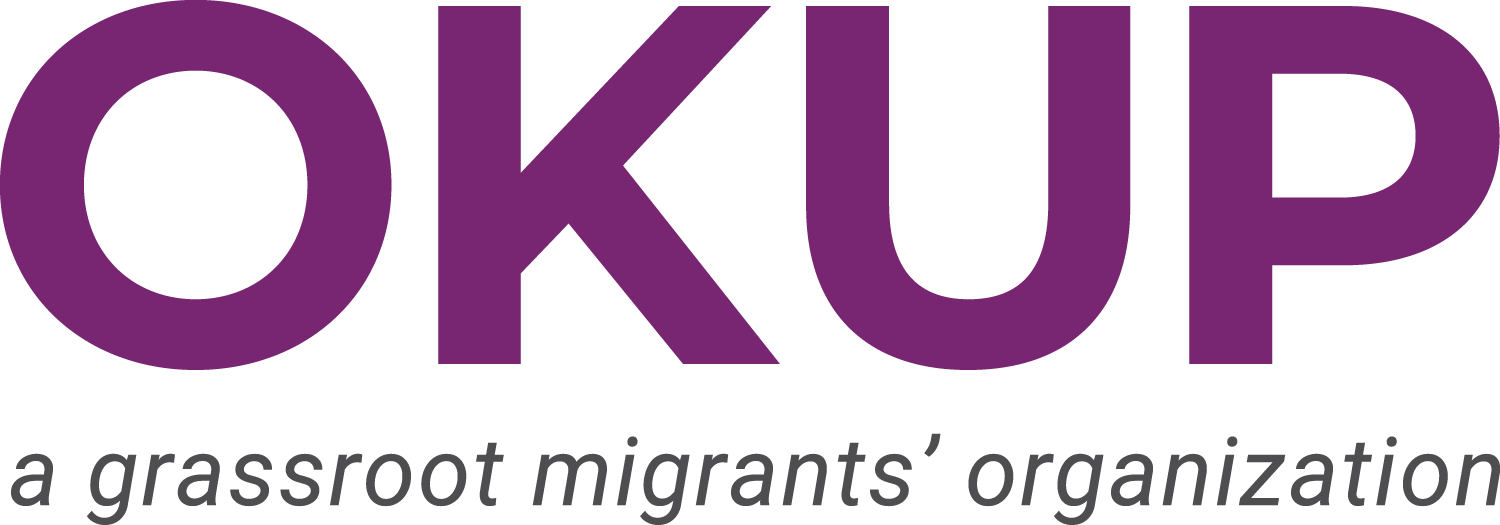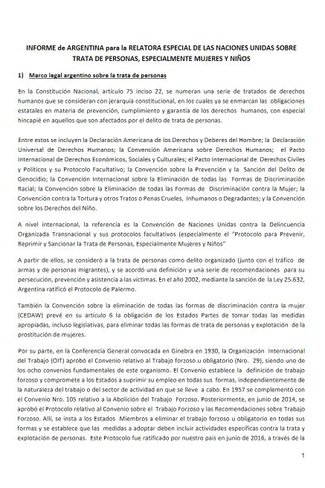Informe de Argentina para la Relatoria Especial de las Naciones Unidas sobre trata de Personas, Especialmente Mujeres y Niños
2021
- Author
- Argentina Representative to the United Nations
- World region
- Latin America and Caribbean
- Origin of migration
- Argentina - (Among rescued victims of modern slavery in the agriculture sector a - low - number of nationals of Bolivia, Paraguay, Brazil, Colombia, South Korea, Mexico, Uruguay, the EU were also identified)
- Area of transit
- No data available
- Destination of migration
- Argentina
- Who is affected
- Farm workers
- Type of climatic event
-
Rapid-onset event, Slow-onset event
Floods and droughts. Climate events can disrupt production and prevent workers from harvesting crops. This exacerbates the exploitation of agricultural workers, who are promised payment at the end of the harvest and therefore cannot return to their places of origin until they've completed their work. This form of exploitation is reproduced, prolonged and worsened by climate change. Floods can drive internal migration, which exacerbates vulnerability to human trafficking and forced labour.
- Type of migration/mobility
-
Cross-border, Internal
- Destination industry or sector
-
Agriculture
- Type of modern slavery
-
Forced labour, Human trafficking
Farm workers who already face exploitative conditions are further affected by the impacts of climate change: they are not paid when weather events impede them to work, they are not allowed sick days when affected by poor working and living conditions, they may be abandoned by human traffickers in isolated areas with no money or help, if they are considered of no use due to a lack of production.
- Link between climate change, migration and modern slavery
- Direct
- Key vulnerability factors
-
Loss of income and reduced access to productive land compels people to accept risky employment offers. Internal migration by people in precarious situations makes them more vulnerable to forced labour and human trafficking. Economic, social, political and cultural inequality influence the decision to migrate and increase vulnerability to forced labour and human trafficking.
- Summary
-
Argentina's submission to the United Nations Special Rapporteur on trafficking in persons, especially women and children, explores the impact of climate change events on the agricultural sector. It provides contextual information on Argentina's legal framework around human trafficking, on the national programme for the rescue and support of human trafficking victims, and on the work of the Office of Domestic Violence of the Supreme Court of Justice (OVD CJSJN) and the office of the prosecutor for the trafficking and exploitation of persons (PROTEX).
- Recommendations
-
Argentina is continuing its efforts to identify victims of human trafficking. Prevention efforts take the form of awareness campaigns and training sessions for various actors throughout the country. State agencies that work directly with people who experienced forced labour and human trafficking and those responsible for prosecuting perpetrators require ongoing training. Further research is needed on the role of women and girls who migrate with their families during the harvest season.



